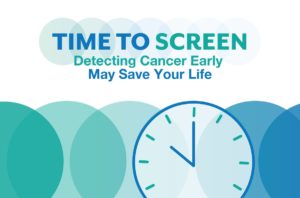
An Ounce of Prevention
Why there’s never been a better time to schedule deferred mammograms, skin examinations, colonoscopies, and other potentially life-saving cancer screenings.
HIPAA Alert: Potential Data Breach Learn More
Questions on Oncology, Hematology and/or Infusion Clinical Services due to COVID-19 Crisis – CALL 833-698-1623
Important Information for Our Patients Regarding the Coronavirus.
RCCA Providing Area Cancer Patients with Access to Care During Coronavirus Outbreak
RCCA Offering Patients Virtual Visits During Coronavirus Pandemic
The spread of the novel coronavirus and its aftermath has left us with many questions. For example, many of us wonder how we can protect ourselves and the people we love from becoming infected. Others are curious about the relationship between cancer and COVID-19: Are patients with cancer more likely to contract the coronavirus? Will cancer treatments be disrupted during this time of heightened demand for critical medical care?
For answers to these questions and more, Regional Cancer Care Associates takes a closer look at the current key information about cancer and COVID-19.
Many patients with cancer are at a higher risk of developing serious illnesses after being infected with the coronavirus. This is because of the taxing effects that cancer and its treatments can have on the immune system. However, some patients who have previously been treated for cancer may be able to regain healthy immune function. If you’re concerned about your level of risk, reach out to your oncologist or to a medical professional who is familiar with your health history to learn more.
Those who are at an increased risk need to strictly follow the U.S. Centers for Disease Control and Prevention (CDC) social distancing guidelines and other best practices to prevent infection. For instance, people at increased risk should stay home whenever possible until wider testing and treatment measures become available. However, if you need to leave home during this time, you must maintain 6 feet of distance from others, wear a face mask that covers both the mouth and nose, and wash your hands frequently with soap and water for at least 20 seconds. When soap and water are unavailable, use a hand sanitizer that contains at least 60% alcohol. Fully cover your hands with the hand sanitizer and rub until dry.
For many people with cancer, treatments like chemotherapy or stem cell (bone marrow) transplants are delivered along a purposeful timeline. For instance, if a patient is scheduled to receive surgery to keep cancer from returning, timing is everything.
However, with the current influx of patients in hospitals here and all over the world, individuals with cancer are increasingly being asked to reschedule their treatments. For this reason, RCCA has pledged to provide care not only to our long-established patients but also to those who have recently been diagnosed with cancer or are unable to receive care at their facilities. Whether patients need transplant care, chimeric antigen receptor T cell (CAR-T cell) therapy, or another service, we will work to accommodate them throughout the COVID-19 pandemic and beyond.
Patients need to be cautious when leaving their homes and entering medical facilities, especially if they have or have had cancer. If you’re in doubt about whether you should be screened for cancer, we encourage you to discuss the following points with your care provider:
RCCA rigorously follows the CDC’s guidelines to keep our Connecticut, Maryland, and New Jersey facilities sanitized and safe. Thanks to our thorough cleaning and COVID-19 screening processes, we’re hard at work to keep our patients healthy while providing them with the preventative care they need.
For more information or to schedule an appointment,
call 844-346-7222. You can also schedule an appointment by calling the RCCA location nearest you.

Why there’s never been a better time to schedule deferred mammograms, skin examinations, colonoscopies, and other potentially life-saving cancer screenings.

When evaluating a patient’s particular form of cancer, physicians at Regional Cancer Care Associates often look to the primary tumor – the source where cancer

A family history of cancer can be intimidating, because it means your risk of getting the disease may be higher compared to those with no

Regional Cancer Care Associates is one of fewer than 200 medical practices in the country selected to participate in the Oncology Care Model (OCM); a recent Medicare initiative aimed at improving care coordination and access to and quality of care for Medicare beneficiaries undergoing chemotherapy treatment.